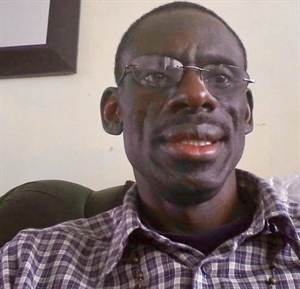This article is part of a series of research impact stories related to our REF 2014 submission.
Professor Tom Harrison is improving survival rates for African patients with cryptococcal meningitis by developing new drug combinations and lobbying for cost-effective availability across the continent.
Cryptococcal meningitis kills around 180,000 people every year worldwide. The condition, which is caused by a fungus that infects the lining of the brain and spinal cord, affects people with weakened immune systems, such as those with advanced HIV.
Until last year, the World Health Organization (WHO) recommended treating the infection with a combination of two antifungal drugs, amphotericin and flucytosine, for two weeks. However, amphotericin - often nicknamed ‘ampho-terrible’ - has potentially life-threatening side effects.
70% of patients in Africa with cryptococcal meningitis die within three months
City St George’s researcher Professor Tom Harrison has dedicated the last 15 years to developing better treatments for cryptococcal meningitis. Harrison and the Cryptococcal Meningitis Group at City St George’s (Angela Loyse, Sile Molloy, and Tihana Bicanic) are leading major international trials into new treatment regimens for cryptococcal meningitis.
 Patrick, a 50-year-old from Malawi.
Patrick, a 50-year-old from Malawi.
‘We have shown that reducing the amphotericin course from two weeks to one is better for patients because they get the benefit of the drug while avoiding the side effects,’ explains Harrison, whose work was funded by the Medical Research Council. ‘We've also developed a new treatment combining flucytosine with fluconazole, which is a very safe alternative to amphotericin.’
‘Based on our results, the WHO immediately revised their treatment guidelines for cryptococcal meningitis,’ reveals Harrison. But the story doesn’t end there. Although flucytosine is essential for treating cryptococcal meningitis, it hasn’t been widely available in Africa.
Now, thanks to $20 million grant from Unitaid, access to the drug is improving.
‘Early experiences are encouraging,’ says Harrison,‘ so we should see a reduction in the number of deaths from cryptococcal meningitis over the next few years.’
Patrick, a 50-year-old from Malawi who received the treatment as part of a clinical trial, thinks everyone should have the same opportunity. ‘I am now back on my feet, and so could be many other people living with HIV if we only made testing and treatment of opportunistic infections available to them,’ he says.